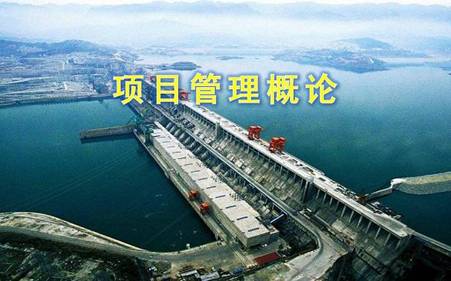
当前课程知识点:Economic law > 2. Antitrust Law > 2.5 Centralized legal regulation of operators > 2.5
同学们好
hello class
今天我们来学习
today we come to learn
反垄断法的第五节
the section five of the Anti-monopoly Law
经营者集中的法律规制
of operators
第五节
section five
经营者集中的法律规制
centralized legal regulation of operators
作为
as one of the regulatory
我国反垄断法规制对象之一
targets of China's anti-monopoly law
并不是所有的经营者集中
not all concentration of operators
都会受到法律的规制
will be regulated by the law
只有那些阻碍
only those concentration of operators
限制竞争的经营者集中
who hinder and restrict competition
才会受到法律的规制
shall be regulated by the law
根据我国现行
according to China's current
反垄断法律制度
anti-monopoly legal system
经营者集中法律
the contents of legal regulation
规制的内容
of concentration of operators
主要包括经营者集中的含义
mainly includes the meaning
类型
type
和经营者集中申报制度
and concentration declaration systemof
我们先来看
let's see first
经营者集中的
the meaning and type of
含义和类型
concentration of operators
经营者集中的含义和类型
meaning and type of operator concentration
经营者集中
concentration of operators
是指经营者通过合并
means the business operator through the merger
收购
acquisition
委托经营
entrusted operation
联营或其他方式
a joint venture or other means
集合经营者的经济力量
collect the economic power of the operator
提高市场地位的行为
and raise the status of the market
我国反垄断法下的
concentration of operators under
经营者集中
China's anti-monopoly law
主要是指三种情形
mainly refers to three kinds of situations
第一种情形是
the first case is
经营者合并两个或两个以上
operators merge two or two more operators
的经营者合并为一个经营者
into one operator
从而导致经营者集中的行为
which results in the concentration of operators
那么合并分为
then the merger is divided into
横向合并
horizontal merger
纵向合并
vertical merger
以及混合合并
and mix and merge
也叫综合合并
also called integrated merger
其中
here
横向合并
horizontal merge
又叫做水平合并
also called horizontal merge
是指因生产或销售同类产品
refers to the merger of enterprises in direct
或者提供同种服务
competition due to production or sale of
而处于相互直接竞争中的企业之间的合并
similar products or provide the same service
纵向合并
vertical merger
又叫做垂直合并
also called vertical merge
它是指同一产业中
it refers to the merger between operators that
处于不同阶段而实际上
are in the same industry at different stages
有买卖关系的企业之间的合并
but in fact have a business relationship
那么混合合并
then mix and merge
或者说综合合并
or integrated merger
一般是指
generally refers to
既不存在竞争关系
the merger between operators that do not
也不存在买卖关系的企业之间的合并
have a business nor competitive relationship
即
that is
跨行业的企业合并
cross-industry merger of enterprises
那么第二
second
经营者通过取得股权或资产的方式
by acquiring the equity or assets
取得对其他经营者的控制权
an operator gain control over other operators
经营者控制是指
operator control refers to that
经营者通过收购
the operator through the acquisition
委托经营
entrusted operation
联营和其他方式
association and other means
获得控制权
gain control and
从而导致经营者集中的行为
thus causing the concentration of operators
那么经营者集中的第三种
the third form of the concentration of
表现形式叫
operators is called
经营者通过合同等方式
an operator obtaining control rights over other
取得对其他经营者的控制权
business operators by means of contracts etc
或者能够
or be able to
对其他经营者施加决定性的影响
exert a decisive influence on other operators
这就是
these are the
我国反垄断法所规制的
three types of concentration of operators regulated
经营者集中的三种类型
by China's anti-monopoly law
那么这三种类型的核心
so the core of these three types
主要表现在两种
have two main manifestations
或者说叫做
or it is called
两个关键点上
on two key points
其中一个叫做控制权标准
one of them is called control standard
另外一个叫做
the other one is called
施加决定性影响的标准
criteria for exerting decisive influence
那么本节的第二个大问题是
so the second big problem in this section is
经营者集中申报制度
Concentration declaration system of operators
第一
first
经营者集中
main body of the operator's
申报的主体
concentration declaration
经营者集中达到
the concentration of operators who meet the
国务院规定的申报标准的
declaration standards by the State Council
经营者应当
the operator shall report to
事先向国务院反垄断
the anti-monopoly law enforcement authority
执法机构申报
under the State Council in advance
未申报的不得实施集中
no concentration shall be carried out without declaration
那么这里边涉及到
the declaration standard stipulated by the
国务院规定的申报标准
State Council mentioned above
相应的
correspondingly
在国务院的具体的
there are provisions in the specific
经营者集中的申报
measures for the declaration of concentration
办法当中有规定
of business operators under the State Council
同学们在课下
after class
可以查一下具体的标准
students can check the specific standards
比如说
for example
涉及到境内企业的
involving the concentration of
经营者集中的
operators of domestic enterprises
那么
then
所有的经营者的境内资产
the domestic assets of all operators
不得低于20亿元
shall not be less than 2 billion yuan
其中
here
两个经营者合并资产
for the combined assets of two operators
每个经营者的资产的要求是
the requirements of each operator's assets
不得低于4亿元人民币
are no less than 400 million yuan
我在这里给大家
I'm here to show you that
举的这只是境内的企业的这样一个
this is just China’s standards for
经营者集中的标准
concentration of operators
其他的标准
for other standards
同学们可以查一下
students can check it out
关于经营者集中申报的规定
for the provisions on concentration declaration
那么下面是经营者集中中
In case of any of the following
有下列情形之一的
circumstances in the concentration of operators
可以不向国务院
it may not report to the anti-monopoly
反垄断执法机构申报
enforcement authority of the State Council
那么该项制度
the system
也可以认为是一种豁免制度
can also be regarded as an exemption system
第一种形式叫
the first form is that
参与集中的一个经营者
an operator who participates in a concentration
拥有其他每个经营者百分之五十以上
owns more than 50 percent of the voting
有表决权的股份或者资产的
shares or assets of each other operator
第二种是
the second is that
参与集中的每个经营者
for each operator participating in the
百分之五十以上
concentration more than 50 percent
有表决权的股份
of voting shares or the assets
或者资产被同一个
are owned by the same operator
未参与集中的经营者拥有的
who is not involved in the concentration
同学们
class
对比并仔细观察该两项豁免情形
compare closely the two exemptions
大家可以发现
you can find it
那么它们的共同特点是
their common characteristics are that
尽管存在着经营者的集中
despite the concentration of operators
但是控制权没有发生变化
the control power has not changed
所以说
so to speak
不需要向
there is no need to report to
国务院反垄断
the anti-monopoly enforcement
执法机构申报
authority of the State Council
这一点提醒同学们
this is a reminder to the students
需要你们注意
I need your attention
二是
second
经营者集中申报的方式
mode of concentration declaration by operators
经营者合并方式的集中当中
concentration of merger modes of operators
那么它是由
it is declared by all
参与合并的全部经营者进行申报
the operators involved in the merger
那么对于
so as to
以协议或者他式的来进行集中的
concentrated by agreement or otherwise
由取得控制权的
the declaration shall be made by the
经营者进行申报
operator who has obtained the control right
那么其他经营者是予以配合
and the other operators shall cooperate
申报人可以自行申报
the applicant may declare on its own
当然也可以依照
or in accordance with the relevant provisions
有关规定委托他人来代理申报
may entrust others to declare
在同一个案件当中
in the same case
有申报义务的经营者
the operator who has the obligation to declare
是两个或两个以上时
is two or more
那么可以约定
then it may be agreed that
由其中一个经营者
one of the operators shall be
负责申报
responsible for the declaration
也可以共同申报
or make a joint declaration
三是
third
经营者集中的审查程序
review procedures for concentration of operators
那么审查程序分为
the review procedures are divided into
初步审查
preliminary review
和进一步审查
and further review
首先是初步审查
the first is a preliminary review
国务院反垄断执法机构
the anti-monopoly law enforcement authority
应当
of the State Council shall
自收到经营者提交的
upon receipt submitted by operator
符合本法
follow this law
也就是
that is
反垄断法
the anti-monopoly law
第二十三条规定的文件
documents specified in Article 23
资料之日起三十日内
within 30 days of date
对申报的经营者集中进行
to perform preliminary review of
初步审查
the declared concentration of operators
作出是否
and make a decision on whether
实施进一步审查的决定
or not to carry out further examination
并书面通知经营者
and notify the operator in writing
那么国务院
then the anti-monopoly law enforcement
反垄断执法机构
authority of the State Council
作出决定之前
before making a decision
经营者是不得
operators are not allowed to
实施集中的
implement concentration
国务院反垄断
if the anti-monopoly law enforcement
执法机构作出
agency of the State Council
不实施进一步审查的决定
decide not to carry out further examination
或者逾期未作出决定的
or fails to decide within the time limit
经营者可以实施集中
the operators shall implement centralization
那么我们国家法律规定这一项
the purpose of this the law is to
主要是保护经营者的权利
mainly protect the rights of operators
因为如果你
if anti-monopoly law enforcement
国务院反垄断执法机构
agency of the State Council
在法定期限内
within the statutory time limit
没有做出相应的决定的话
no corresponding decision has been made
那么经营者就可以实施集中了
then the operator can implement the centralization
二是
second
进一步审查
further examination
国务院反垄断
if the anti-monopoly law enforcement
执法机构决定
authority of the State Council decides
实施进一步审查的
to carry out further examination
应当自决定之日起
the examination shall be completed within
九十日内审查完毕
90 days from the date of the decision
作出是否禁止
and make a decision on whether to
经营者集中的决定
prohibit the concentration of operators
同时呢
at the same time
要书面通知经营者
notify the operator in writing
在作出禁止
when making a decision prohibiting
经营者集中的决定时
concentration of operators
应当说明理由
reasons should be explained
在审查期间
during the period under review
经营者不得实施集中
operators shall not implement centralization
有特殊情形的
under special circumstances
国务院反垄断
the anti-monopoly law enforcement authority
执法机构经
of the State Council shall notify
书面通知经营者
the operator in writing
可以延长前款
about the time limit for examination
规定的审查期限
prescribed in the preceding
但是呢
however
最长不得超过六十日
the maximum period shall not exceed 60 days
也就是说
that is to say
你无论如何
in any case
延长期限
you cannot extend the time limit
那么你都不能超过六十日
over 60 days
国务院反垄断
if the anti-monopoly law enforcement
执法机构逾期
authority of the State Council fails to
未作出决定的
make a decision within the time limit
经营者可以实施集中
operators may implement centralization
四是
fourth
审查的结果
results of the review
也就是说
that is to say
经过国务院反垄断
after examination by the anti-monopoly law
执法机构的审查之后
enforcement authority of the State Council
将会得出哪些结论呢
what conclusions will be drawn
那么这个结论分为三种
there are three kinds of conclusions
一是批准
one is approval
也就是说
that is to say
你整个的这个审查程序
if your entire review process
包括审查的标准
including criteria for review
都符合相应的要求的话
abide by the corresponding requirements
那么国务院反垄断
then the anti-monopoly law enforcement
执法机构
agency of the State Council
就会批准本次经营者的集中
shall approve this concentration of operators
那么第二个结论是禁止
the second conclusion is prohibition
也就是说
that is to say
一旦经过审查发现
once it is found after examination that
本次集中
this concentration
会阻碍或者限制竞争
shall hinder or restrict competition
那么相应的
so correspondingly
国务院反垄断
the anti-monopoly law enforcement
执法机构
the anti-monopoly law enforcement
agency of the State Council
执法机构
agency of the State Council
就会对你的集中行为进行禁止
shall prohibit the concentration
那么第三个结论叫做
the third conclusion is called
批准但附加限制性的条件
approval with restrictive conditions
一般来讲
generally speaking
我们会认为
we think that
经营者集中
concentration of operators
本身具有两面性
have two sides in one's own
也就是说
that is to say
有它好的一面
there's a good side to it
也有它的负面效果
it also has its negative effects
那么对于负面效果
for the negative effects
我们叫禁止
we call it a ban
那么对于它好的地方呢
so what's good about it
你比如说
for example
集中之后会扩大
the concentration helps enlarge
生产经营规模
the scale of production and operation
有利于
which is beneficial to
提高技术的创新
improve the innovation of technology
那么这种情况下
in this case
我们就会采取一定的措施
we will take certain measures
来限制它的不利效果
to limit its adverse effects
但是
but
总体上
on the whole
我们会批准
we will approve
那么总结起来
to sum it up
经营者集中具有
for the concentration of operators that has
或者可能具有排除
or may have an effect of excluding and
限制竞争效果的
limiting the competition
国务院反垄断
the anti-monopoly law enforcement
执法机构应当
authority under the State Council shall
作出禁止经营者
make a decision to prohibit the
集中的决定
concentration of operators
但是
but
经营者能够证明该集中
if the operator can certify that the concentration
对竞争产生的有利影响
has a favorable influence on competition
明显大于不利影响
obviously greater than the adverse effect
或者符合社会公共利益的
or conform with public interests
国务院反垄断
the anti-monopoly law enforcement
执法机构
agency of the State Council
可以作出对经营者
may make a decision not to prohibit
集中不予禁止的决定
the concentration of business operators
那么对不予禁止的
for the non-prohibited
经营者集中
concentration of operators
国务院反垄断执法机构
the anti-monopoly law enforcement agency
可以决定附加
of the State Council may decide to attach
减少集中对竞争产生
restrictive conditions on reducing the adverse
不利影响的限制性的条件
effects from concentration to competition
那么第五
fifth
未依法申报经营者
investigation on failing to report the
集中的调查处理
concentration of operators according to law
那么下面是
as follows
根据我国相关
according to China's relevant
反垄断法律制度
anti-monopoly legal system
经调查认定被调查的经营者
an operator who has been found to
应申报而你没有申报的
was supposed to declare but failed
那么国家市场监督
shall be fined by the State administration
管理总局
of market supervision
可以对被调查的经营者处以罚款
and shall take steps to restore
并可以责令被调查的经营者
to the pre-concentration status
采取措施恢复到集中前的状态
under the order by investigation
比如说
for example
停止实施集中
stop implementing the concentration
限期处分股份或资产
dispose shares or assets within a time limit
限制转让营业
or restrict transfer of business
等等
and so on
以上就是我国
above is the basic system of the regulation of
反垄断法规制
China's anti-monopoly law
经营者集中的基本制度
on the concentration of operators
经营者集中本身
operator concentration itself
并不一定违法
is not necessarily illegal
只有那些
only those concentration of operators
阻碍
that hinder
限制竞争的经营者集中
and restrict competitions
才会受到法律的规制
will be regulated by the law
好
ok
同学们
everyone
今天的课就到这里
today's class is over
再见
goodbye
-1.1 Meaning and characteristics of economic law
--1.1
-1.2Adjusting object and system of economic law
--1.2
-1.3 Relations between economic law and adjacent law
--1.3
-1.4Origin and development of economic law
--1.4
-1.5.Basic principles of economic law
--1.5
-1.6Subject and types of Economic Law
--1.6
-1.7The rights of the subjects of economic law and their obligations and responsibili
--1.7
-1.8The formulation and implementation of economic law
--1.8
--Chapter homework
-2.1The basic issues of Anti-Monopoly Law
--2.1
-2.2Related markets and their definitions
--2.2
-2.3Legal regulation of monopoly agreement
--2.3
-2.4Legal regulation on abuse of market dominance 2.4
--2.4
-2.5 Centralized legal regulation of operators
--2.5
-2.6 Legal regulation of administrative monopoly
--2.6
-2.7 Enforcement system of antimonopoly law
--2.7
-Chapter homework
--章节习题exercises
-3.1The basic problem of Anti-Unfair Competition Act
--3.1
-3.2 Regulation of Market Confusion Act
--3.2
-3.3 Regulation of Commercial Bribery
--3.3
-3.4 Regulation of False Publicity Act
--3.4
-3.5 Regulation and Defamation of Goodwill
--3.5
-3.6 Regulation of the Infringement of Trade Secrets
--3.6
-3.7 Regulation of Improper Sales with Prizes
--3.7
-3.8 Regulation of Unfair Competition in Network Field
--3.8
-Chapter homework
--exercises
-4.1 Overview of Consumer Rights and Interests Protection Act
--4.1
-4.2 The Right of Consumers
--4.2
-4.3 Operator's Obligation
--4.3
-4.4 The Protection of Consumers' Rights and Interests Made by the State and
--4.4
-4.5 Legal Liability
--4.5
-4.6 The Category of Civil Liability
--Chapter homework
--4.6
-5.1 overview of Finance and Tax Law
--5.1
-5.2 Budget Preparation
--5.2
-5.3 budget review and preparation
--5.3
-5.4 Budget Implementation and Adjustment
--5.4
-5.5 scope of application in the Government Procurement Law
--5.5
-5.6 principles and policies of government procurement
--5.6
-5.7 government procurement procedures and methods
--5.7
-5.8 government procurement contract
--5.8
-5.9 government procurement relief mechanism
--5.9
-5.10 principle of law-based taxation
--5.10
-5.11 taxpayer's right
--5.11
-5.12 tax constitutive requirements
--5.12
-5.13 the principles of the turnover tax law
--5.13
-5.14 principle of income tax law
--5.14
-5.15 principle of Property Tax Law
--Chapter homework
--5.15
-6.1 the concepts of finance and Financial Law
--6.1
-6.2 China's financial institutions and regulatory agencies
--6.2
-6.3 central bank law
--6.3
-6.4 commercial bank law system
--6.4
-6.5the securities regulatory system
--Chapter homework
--6.5
-Final Examination


